Floating Life Receives Gold Medal at MUSE Design Awards 2024
MUSE Design Awards has announced the winners of its first contest of 2024. The organizer is the International Awards Association (IAA). Over 8,500 entries from around the world participated in this competition, highlighting its significance in recognizing creative and design professionals.
In this contest, Rani Zhang and Xianmin Xian received the gold award in the Architecture Design – Sustainable Living / Green Project category for their project "Floating Life." This conceptual work, created for the Hainan region in China, demonstrates their outstanding innovations and professional expertise.
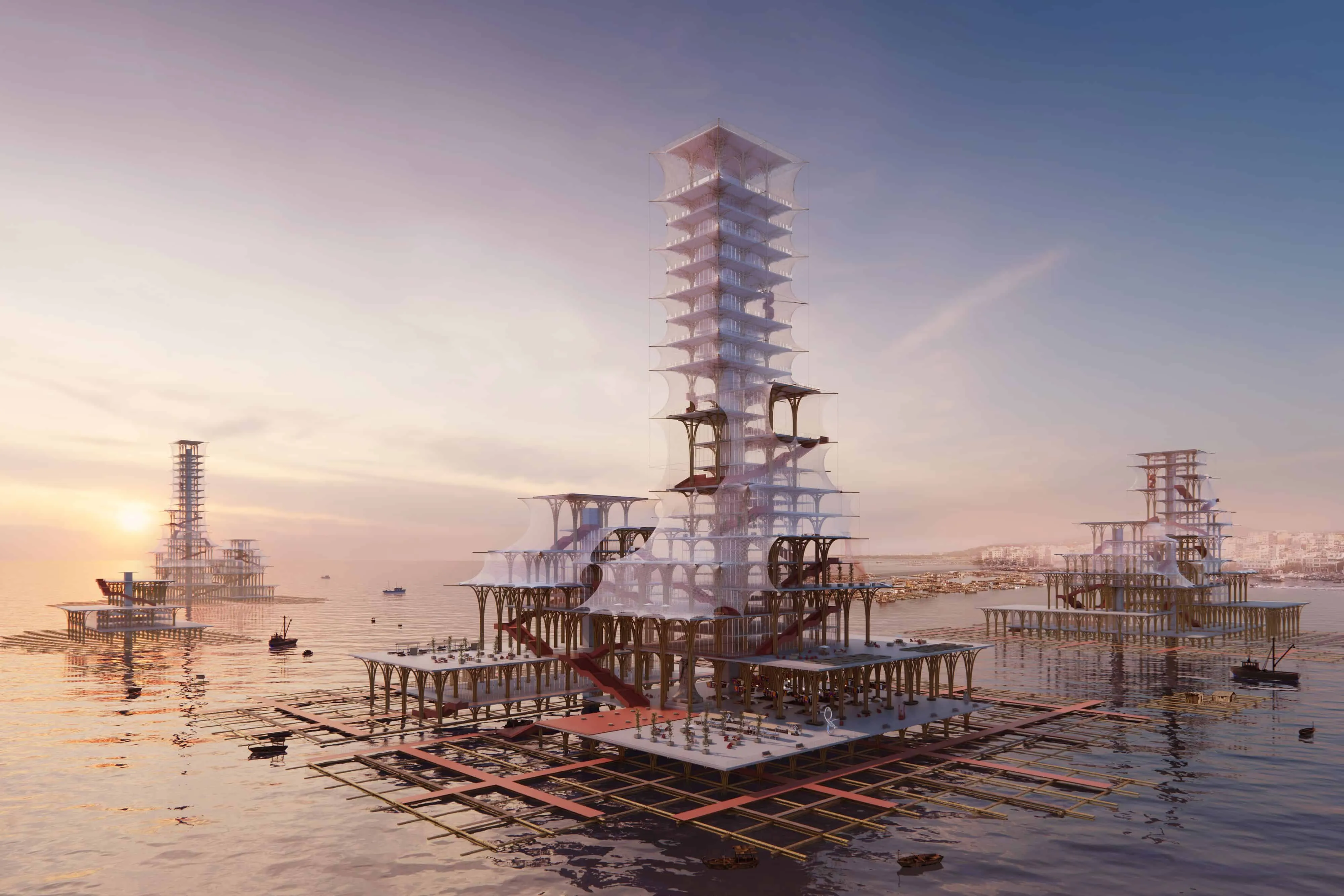
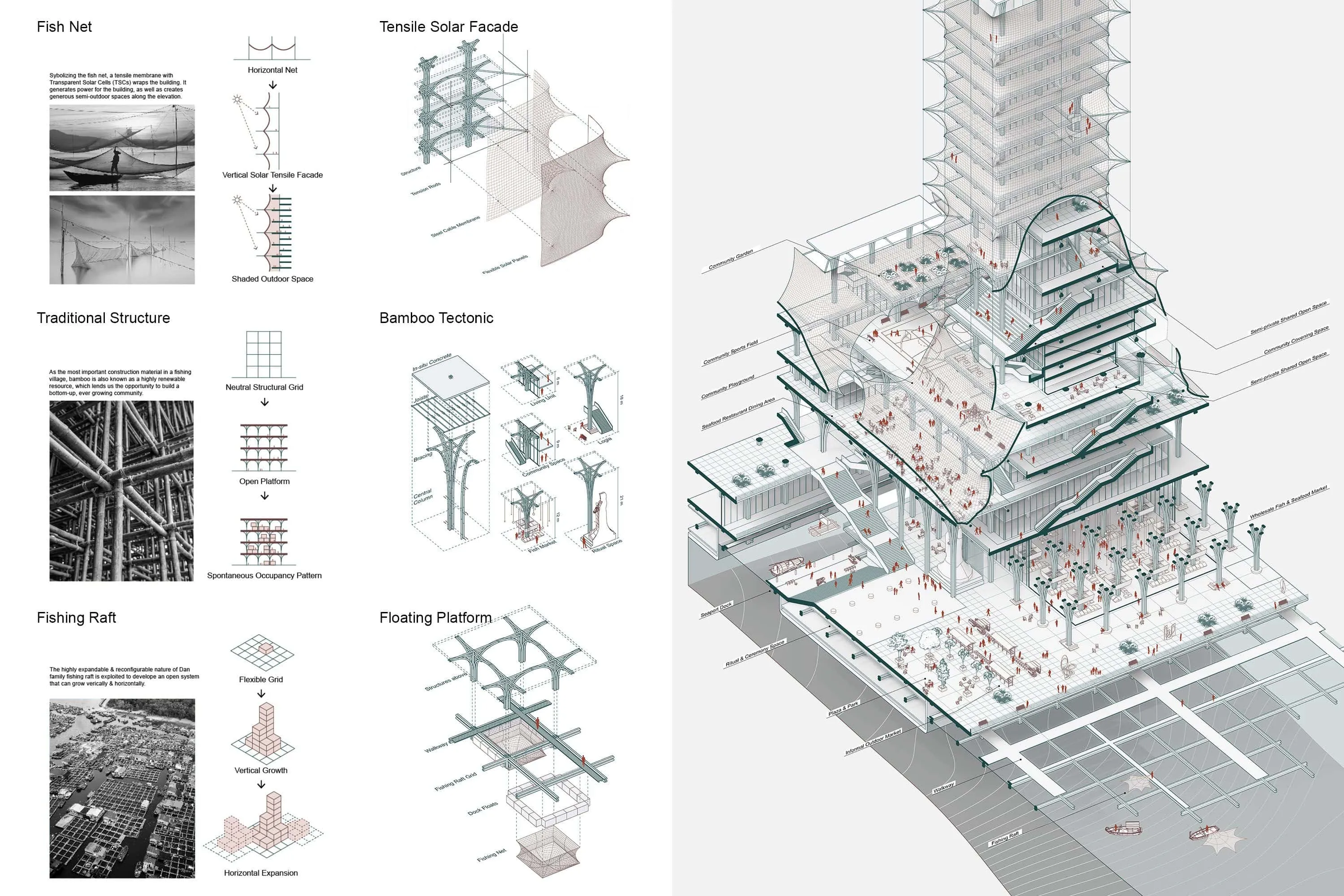
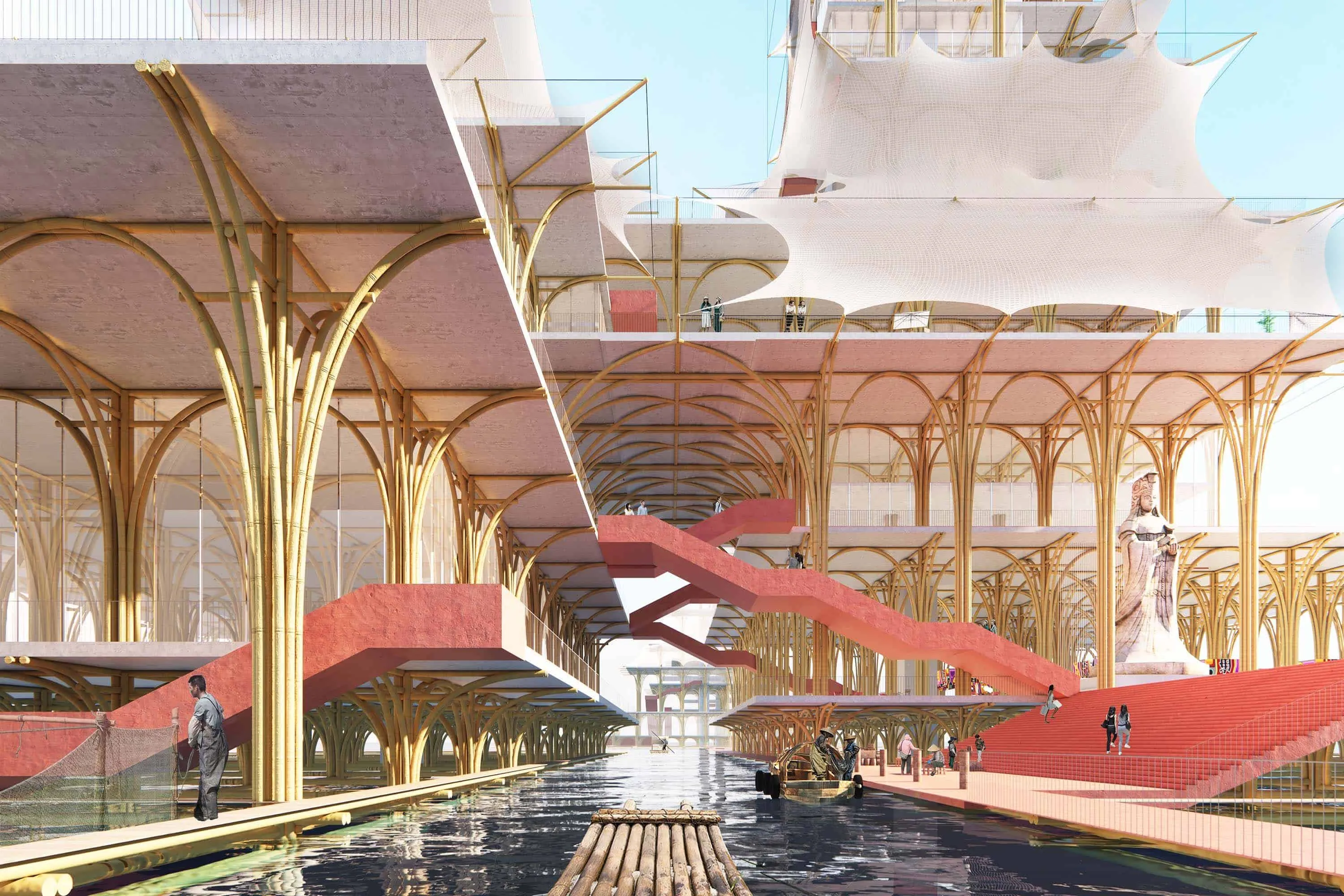
Project Overview: Floating Life
Hundreds of years ago, the Dan family, limited in living or working on land, founded their coastal settlement. This community rooted in fishing traditions now comprises 1,750 families and over 8,300 people in Hainan Province. Residents depend on fishing, seafood farming, tourism, and the restaurant business. However, rapid population growth and unplanned expansion have led to serious ecological issues requiring a sustainable settlement model.
The new project in southeastern Hainan considers the humid climate, extending along the coastline to reduce ecological pressure and utilize marine resources. It presents a "fishing skyscraper," a vertical community designed for ecological sustainability. This structure features a multi-level energy, water, and material recycling system. It includes seven modular aquaculture types to minimize external material needs and a central anaerobic digester for organic waste processing. The skyscraper aims to achieve energy self-sufficiency through solar panels, waste-to-heat conversion systems, and tidal power generation.
This innovative approach extends to recycling non-organic materials, significantly reducing marine pollution. Disassembled fishing materials are repurposed for construction or mangrove restoration. The design respects local traditions, including temples and public spaces, as well as commercial and tourism facilities. This floating skyscraper represents a new adaptive living model for future generations, blending traditions with sustainability.
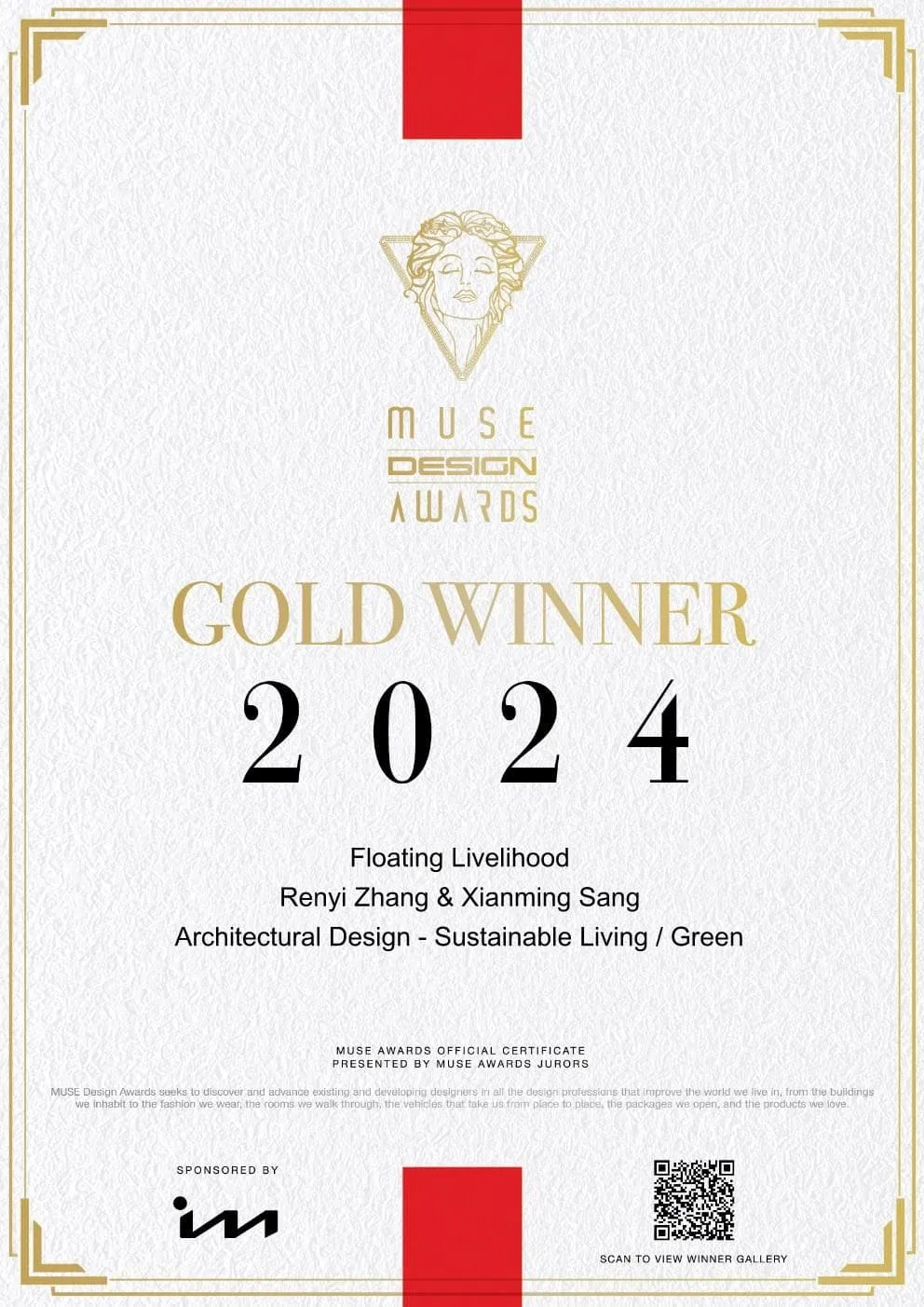
About MUSE Design Awards
MUSE Design Awards recognize outstanding achievements in various design fields. The International Awards Association (IAA) ensures these competitions are accessible and fair, awarding only those who truly deserve recognition. A rigorous evaluation process is conducted by a panel of experts, journalists, and academics. MUSE Design Awards honor exceptional works in conceptual architecture, innovative transportation systems, futuristic fashion design, progressive furniture, next-generation electronic gadgets, and advanced biotechnology.
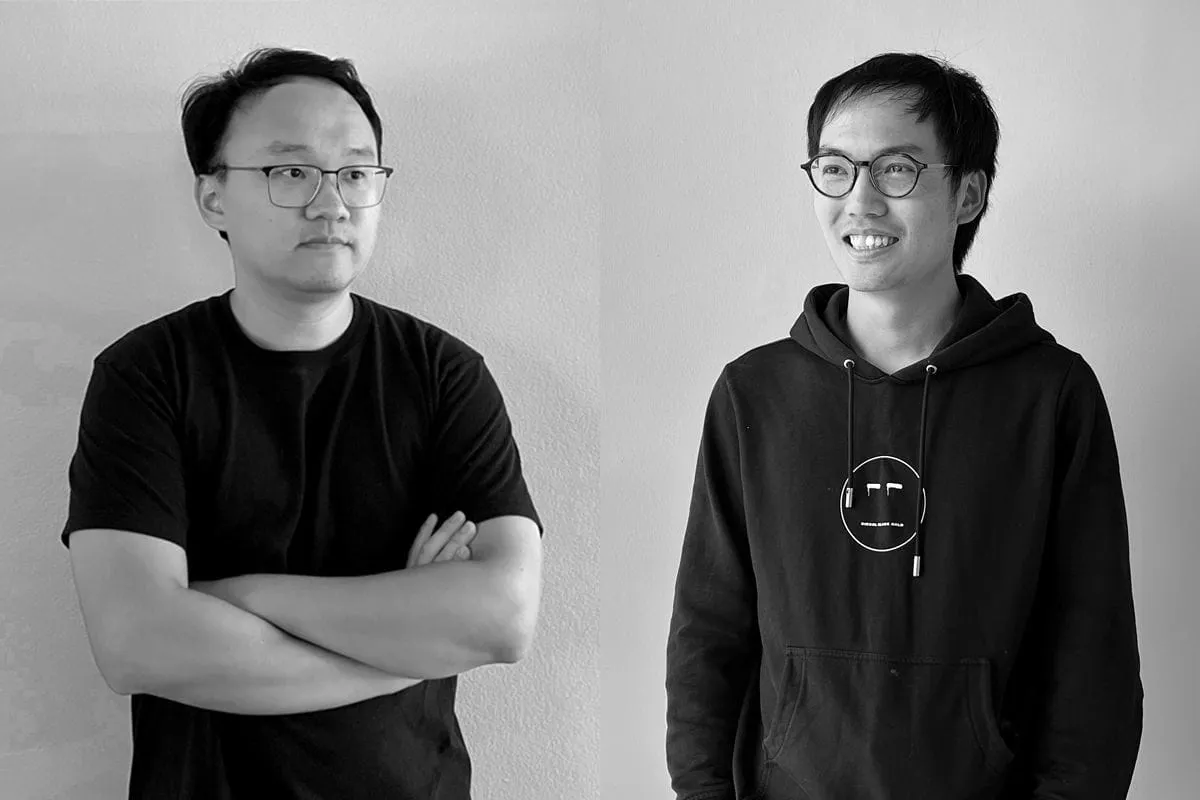
About Rani Zhang and Xianmin Xian
Rani Zhang is an architect and urban designer with experience working along the coasts of the United States. He holds a Master's degree in Architecture and Urban Design from Harvard Graduate School of Design. Rani has worked for prestigious firms such as Sasaki and Perkins & Will, participating in various projects across the country and internationally.
Xianmin Xian is an experienced architect with a MArch degree from Harvard and professional experience at renowned firms such as Perkins + Will, OMA, and Junya Ishigami. Xianmin specializes in designing large-scale office and residential buildings, as well as creating innovative spaces for art exhibitions and fashion shows.
Q&A with Rani Zhang and Xianmin Xian
Q: What does design mean to you?
A: "Design means imagination and creating spaces that enhance the human experience while adhering to and integrating with the natural environment. It's about innovation, functionality, and aesthetics for meeting community needs, solving problems, stimulating social interaction, and ensuring sustainability."
Q: Do you think your country and its cultural heritage influence your design process?
A: "Our Chinese heritage deeply influences our design process. The rich cultural, historical, and philosophical traditions of China shape our perspective on space, form, and community. Principles of harmony with nature and yin-yang balance guide our use of space, light, and material choices. Additionally, the collective nature of Chinese society shapes our focus on designing for social interaction. By integrating these cultural elements, we ensure that our projects are both functional and culturally significant."
Q: Can you tell us a bit about the winning work you submitted to the MUSE Design Awards 2024 and why you chose this project?
A: "Our winner, 'Floating Life,' was chosen for its innovative approach to sustainable and adaptive community design. Developed for the Dan family in Hainan Province, China, it addresses issues of preserving cultural heritage and ecological problems in traditional coastal settlements. We chose this project because it demonstrates our commitment to solving complex issues through architecture, integrating sustainability with economic and social development. The project includes a vertical fishing skyscraper utilizing renewable energy and recycled materials, integrating aquaculture with residential and commercial spaces."
Q: What was the main challenge with this project?
A: "The primary challenge was designing a sustainable and adaptive structure that meets the complex needs of a rapidly growing coastal community while preserving cultural traditions and minimizing ecological impact. Balancing traditional ways of life, such as fishing practices and communal living, with modern technological interventions was challenging. Additionally, integrating various systems—renewable energy, waste recycling, and aquaculture—into one vertical structure required careful planning and innovation. Ensuring the ecosystem's functionality without disrupting local marine environments added another layer of complexity."
Q: How has winning the award affected your practice/career?
A: "Winning at MUSE Design Awards 2024 is an important milestone, providing recognition and encouragement for sustainable and innovative solutions. It confirms our focus on sustainability and motivates us to address ecological and social challenges, pushing the boundaries of sustainable design in future works."
Q: What do you see as the future of sustainable architectural design?
A: "The future of sustainable architectural design lies in integrating cutting-edge technologies with traditional wisdom. Innovations in renewable energy, materials science, and construction techniques will lead to more efficient and adaptive structures. However, maintaining a balance with cultural heritage and local traditions ensures these projects remain meaningful to the communities they serve."
Q: What advice would you give to aspiring architects and designers?
A: "Approach design with a holistic mindset, considering ecological, social, and cultural factors. Be curious and open to learning from various sources including nature, history, and technology. Above all, design with empathy and deep understanding of the communities you serve, ensuring improved quality of life and sustainability."
Contact MUSE Design Awards
- Website: MUSE Design Awards
- Instagram: MUSE Awards
Need a renovation specialist?
Find verified professionals for any repair or construction job. Post your request and get offers from local experts.
You may also like
More articles:
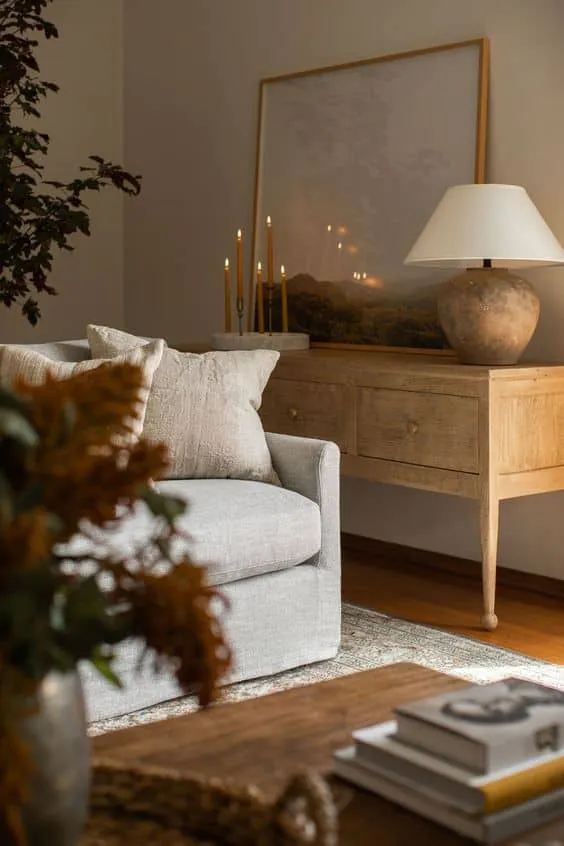 Autumn 2022: Ideas and Inspiration for Decoration
Autumn 2022: Ideas and Inspiration for Decoration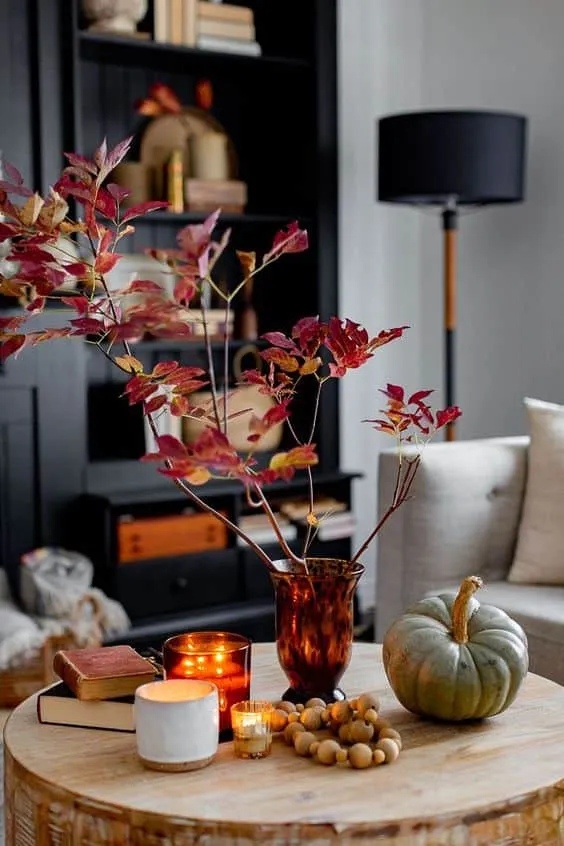 Autumn Inspiration for Decorating Your Home in Every Room
Autumn Inspiration for Decorating Your Home in Every Room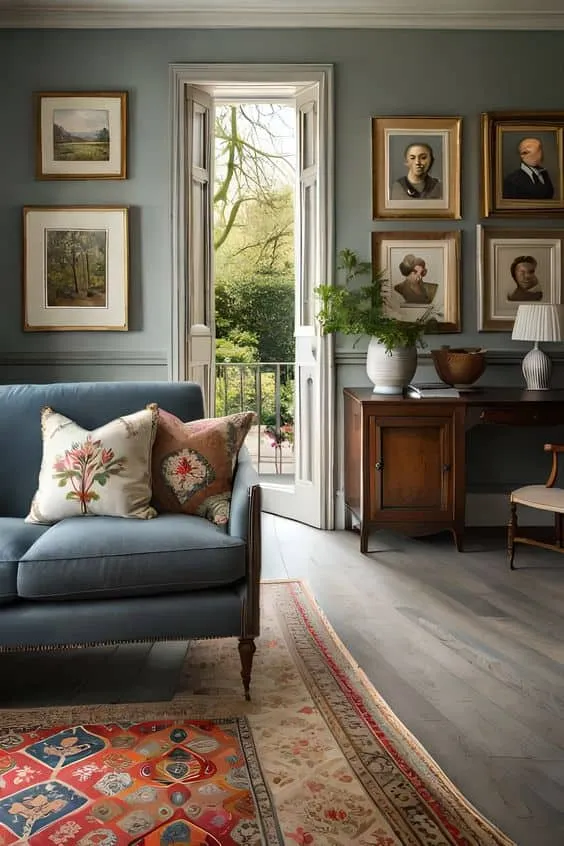 Fall in Love with the Charm of English Cottage Design
Fall in Love with the Charm of English Cottage Design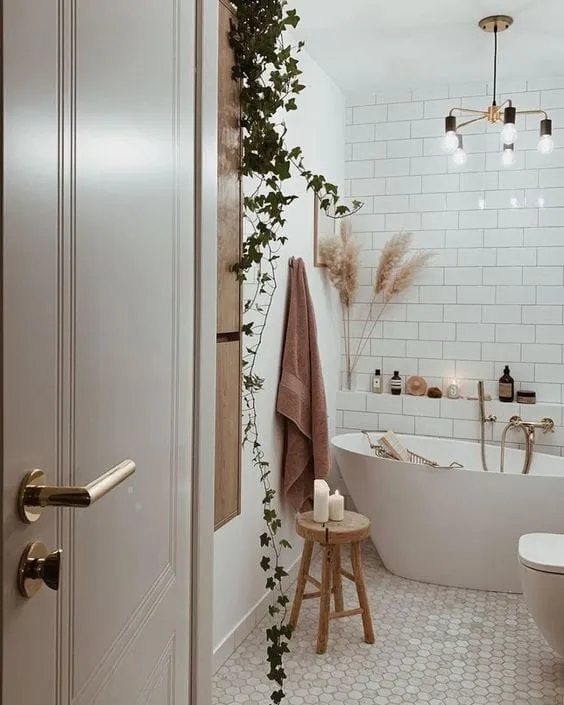 Autumn Bathroom Interior Ideas You'll Love
Autumn Bathroom Interior Ideas You'll Love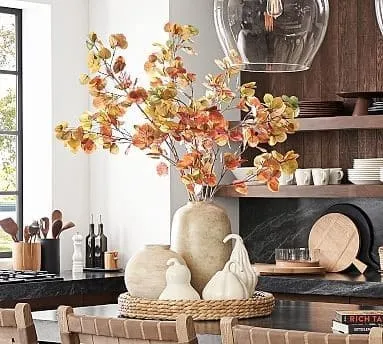 Autumn Kitchen Equipment and Trends
Autumn Kitchen Equipment and Trends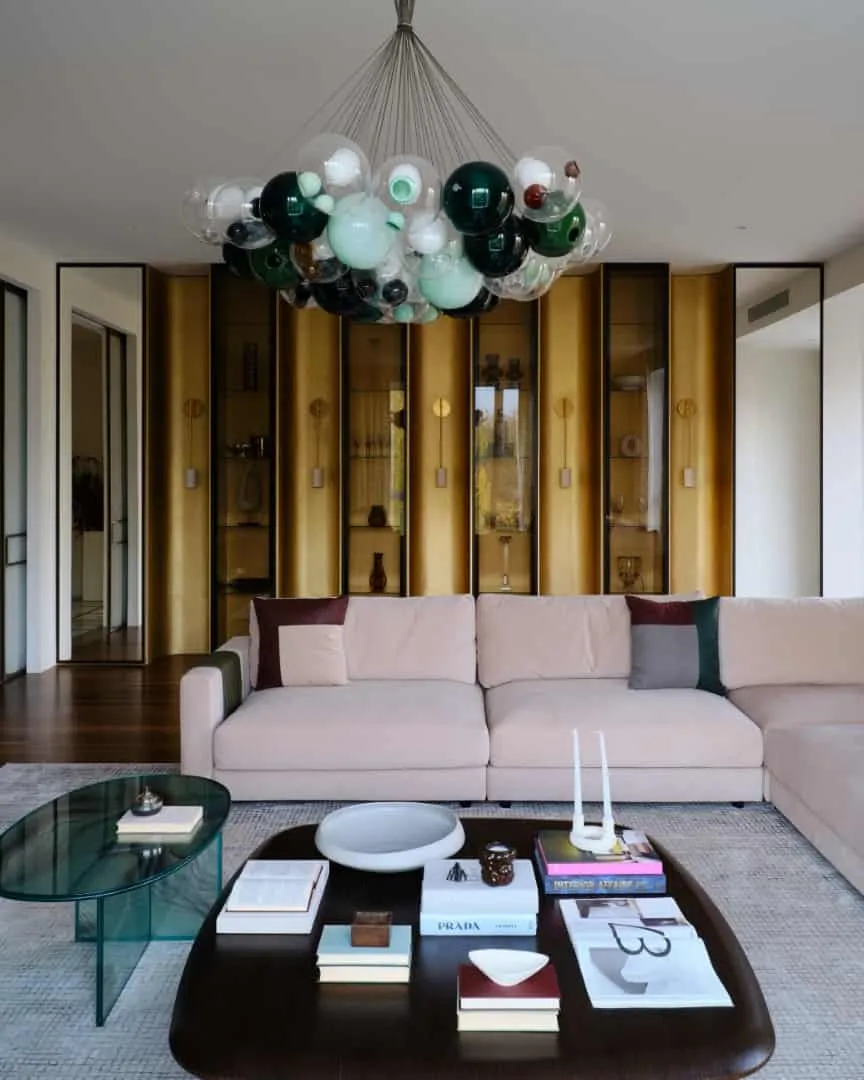 Family Apartment in Almaty by Akka Interiors Studio: A Light-Filled Home Inspired by Nature and Culture
Family Apartment in Almaty by Akka Interiors Studio: A Light-Filled Home Inspired by Nature and Culture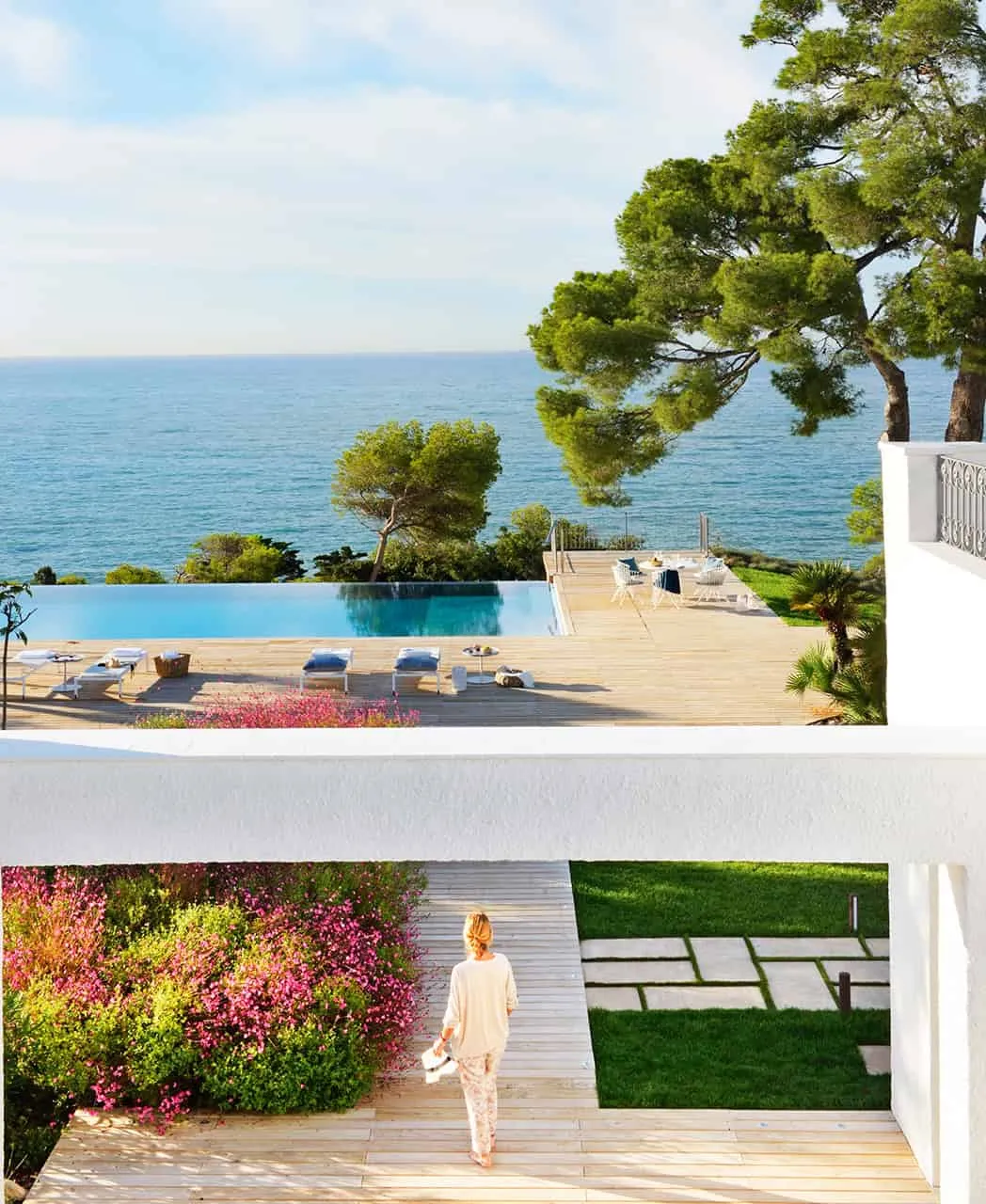 Family House with History
Family House with History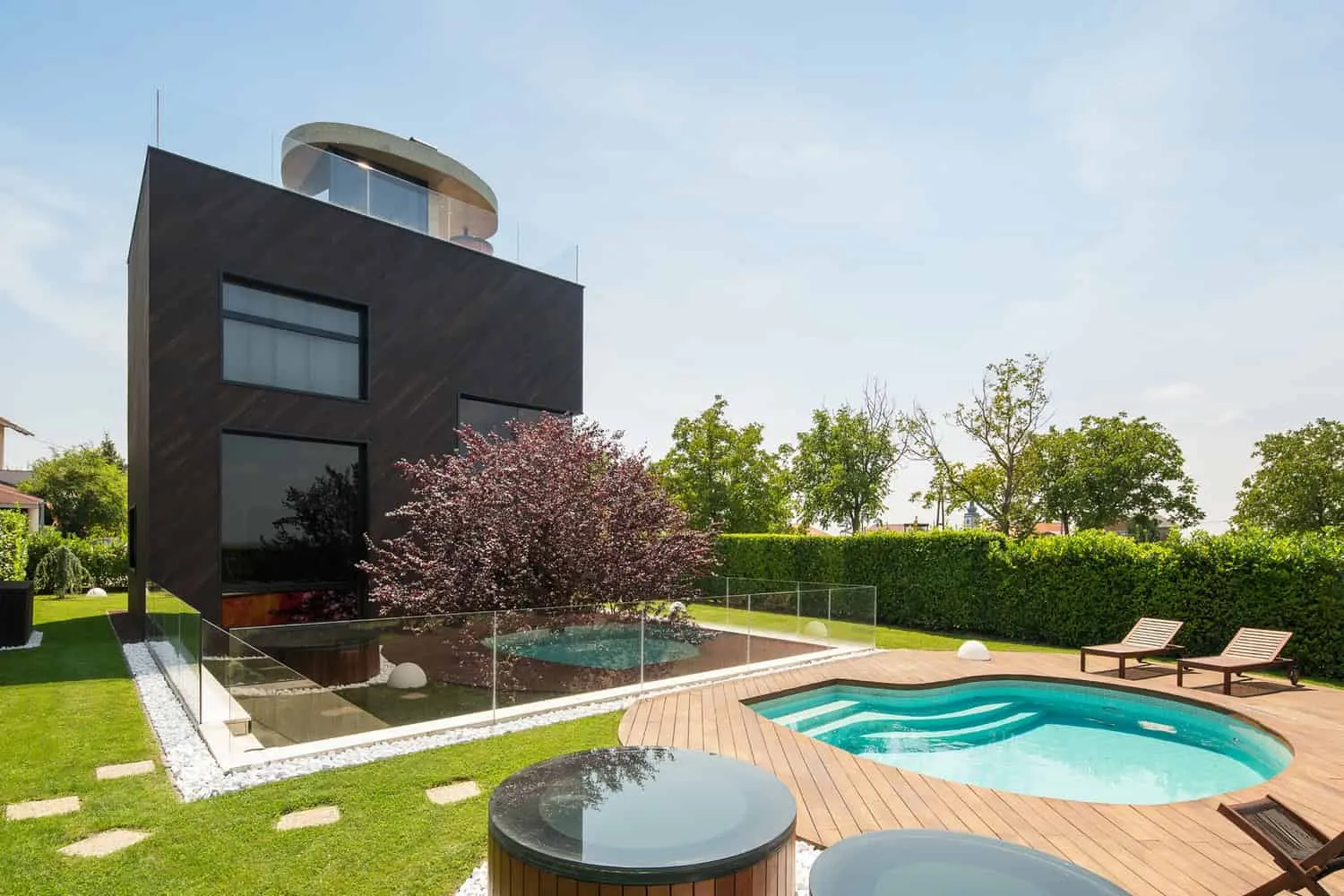 Family House in Kloster Ivanic, Croatia
Family House in Kloster Ivanic, Croatia